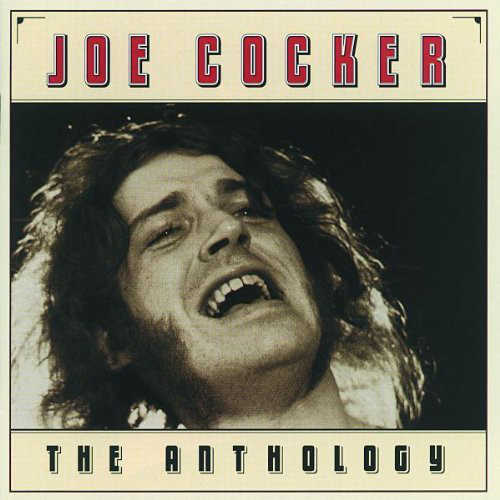Has there ever been an artist in the history of popular music as ill-served by compilations as Joe Cocker? The racks are stuffed full of Joe Cocker compilations, covering a couple of sizeable hits in the late 60s when he was one of the great voices of British blues, and then leaping forward almost twenty years to his anodyne and frankly tedious material he had released since the mid 80s.
So what happened during those intervening years? Ridiculously ambitious tours, phenomenally bad management decisions, a plethora of label changes, money disappearing into black holes, a clutch of solid albums, some of the best blues / soul music ever recorded by a stocky and hairy former gas-fitter from Sheffield. And drugs. Lots of drugs. This compilation is pretty much the only one out there that makes any effort to cover these years, and chooses to forget the frankly embarrassing last thirty years of his career.
I grew up with Joe Cocker, or at least I grew up listening to Joe Cocker. My dad was a huge fan who lived around the corner from the Cocker household in the mid 60s, and quite happily delivered publicity for Cocker at a time when he was still labouring under the belief that a name like Vance Arnold and the Avengers would be his ticket to success.
After years of paying his dues, Cocker finally got the hit he deserved with his immense cover of “With A Little Help From My Friends” (the inspiration for such a radically different cover coming to Joe while he was sat on the outhouse lavatory, singing to himself), some solid follow-up hits (also covers) and then made a memorable appearance at Woodstock.
Then things started to go wrong. Cocker discovered that he had somehow been committed to a marathon tour of the USA. As fate would have it he didn’t have a full time backing band. Enter the flamboyant Leon Russell who helped Cocker form a huge extended band. The resulting Mad Dogs & Englishmen tour was legendary and the live album of the same name is undoubtedly Cocker’s definitive release and one of the greatest live albums ever recorded. Sadly the experience left him broke, burnt out, and in a chemical haze. One of the few upsides of the episode was that it did result in one of my personal favourite Joe Cocker tunes, the formidable “Space Captain”, a towering slice of rock’n’soul which still stands as one of the greatest singles of the era.
Over the following few years Cocker spent much of the time in a drug induced stupor, releasing a clutch of solid albums which more often than not bombed commercially, and that he subsequently had little memory of recording. There were always great songs in abundance though, with “Something to Say”, “I Can Stand A Little Rain” and “Catfish” being among some of his finest vocal performances. Best of all though was his heartbreaking cover of “You Are So Beautiful”, a recording that may very well be Joe Cocker’s single greatest contribution to popular music.
Happily this compilation also covers the period in which Joe Cocker went through a period of personal redemption and he made an effort to make up for all his lost potential, managing to clean himself up, release the modern-sounding Sheffield Steel album, and recorded a huge hit single with Jennifer Warnes, which finally put Joe Cocker back on the path to financial and commercial stability. Sadly it was also one of the last things of any worth Cocker would record before he turned his hand to what can only be generously described as escalator rock. As one of the roughest and rawest voices in music, Cocker needed a rough and ready band to make the most of his material. Sadly since 80s all his albums since the early 80s were over-produced, and all rough edges were smoothed to a glossy, glassy finish by anonymous and soulless session musos.
Like I say, I grew up listening to Joe Cocker, but as we all know, familiarity breeds contempt, so I never appreciated his contribution to pop music until my mid 20s, but it has to be said, that while he had moments of greatness, his best albums can only be found in the 60s and 70s, and few compilations cover the most enduring period of his career. More than anything else, this well selected compilation puts forward the case for Joe Cocker as Britain’s greatest white-soul voice.














No Comment